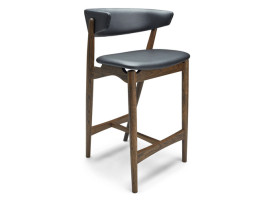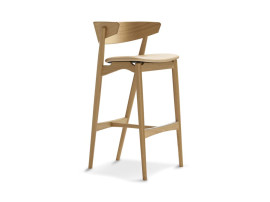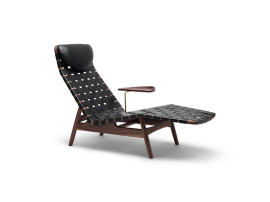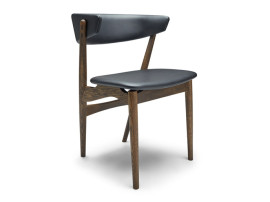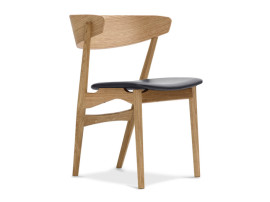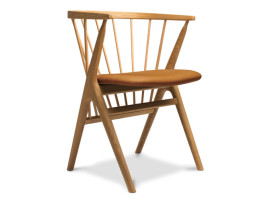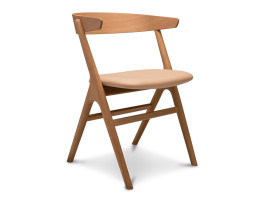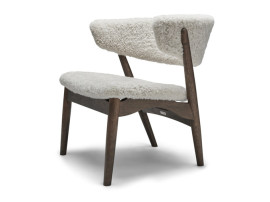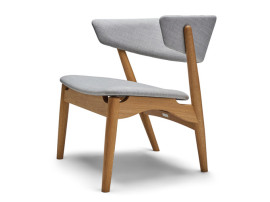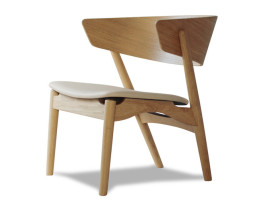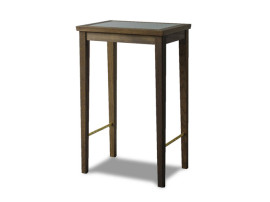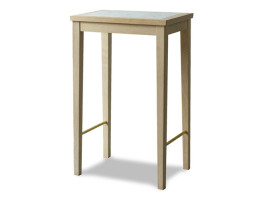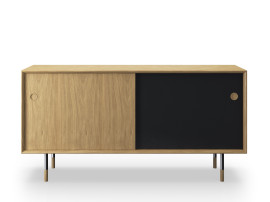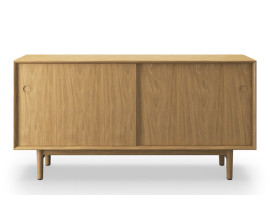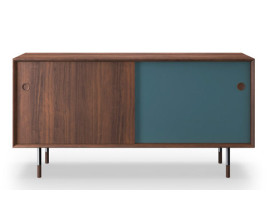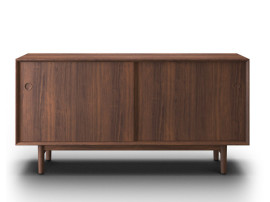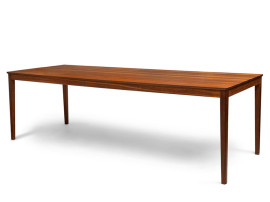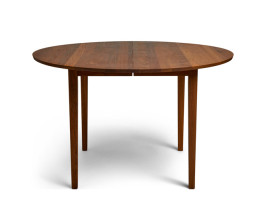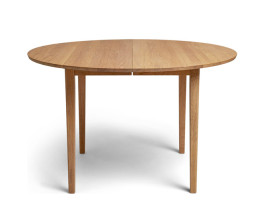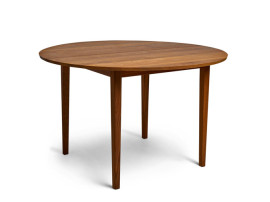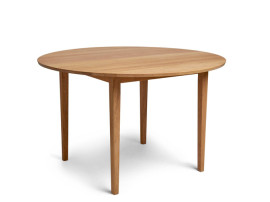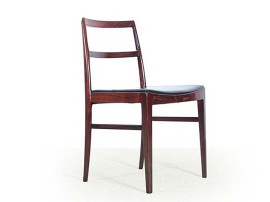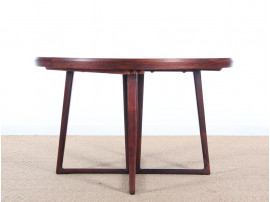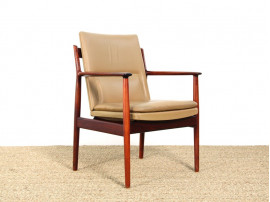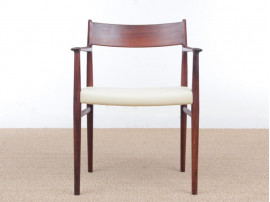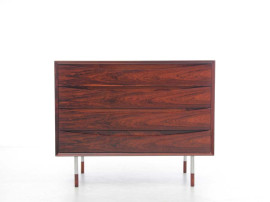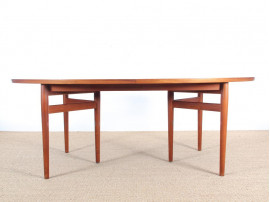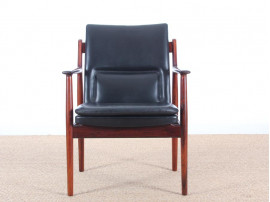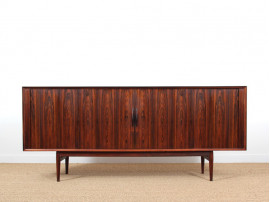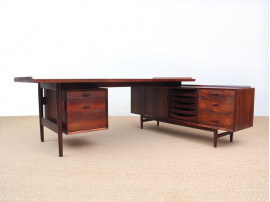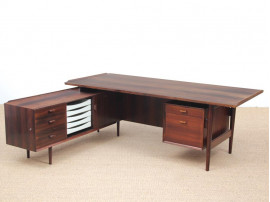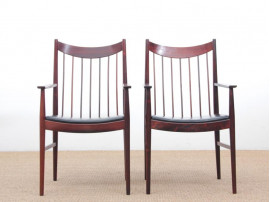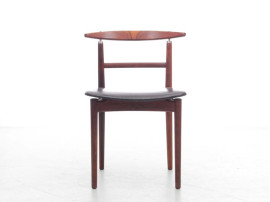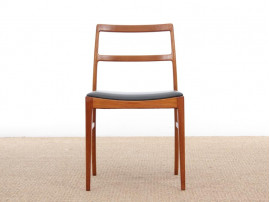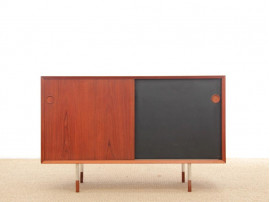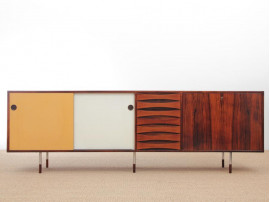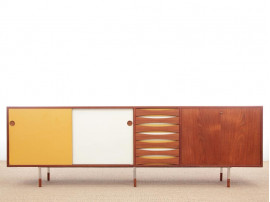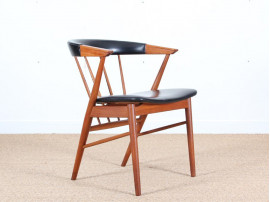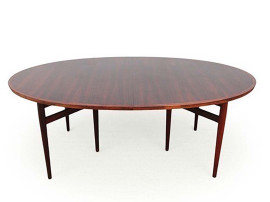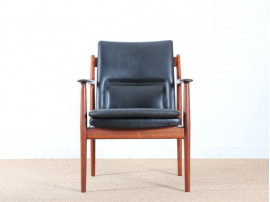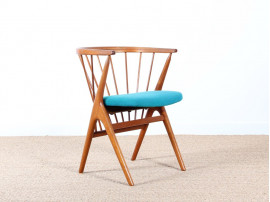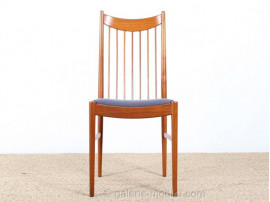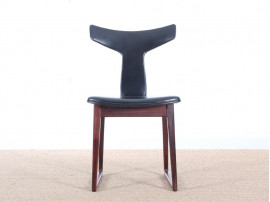
Sibast Furniture
The story of Sibast Furniture is the story of a dedicated family business and Danish furniture enterprise which, since it was established more than a century ago, has raised the bar in efforts to deliver sublime craftsmanship and well-conceived design.
It is also a story about wood, passion and four generations of targeted efforts to develop a classic collection where every single piece of furniture excels by virtue of its powerful integrity and extraordinarily high level of artisanal quality.
The cornerstone of this enterprise, which is now internationally renowned under the name Sibast Furniture, was laid by P. Olsen Sibast when he established Sibast Møbler in the Danish village of Stenstrup in 1908. The enterprising cabinetmaker built up a rowing business over the years, which would eventually impact the Danish furniture industry for decades. From the outset, Sibast Møbler was a supplier of quality furniture to customers in Denmark and, from the early 1950s, increasingly to export markets as well.
In other words, it was a well-established business that was handed over to the next generation of the Sibast family when Helge and his two siblings got the opportunity to take the enterprise (now known as Sibast Furniture) to the next level. It soon became evident that Helge Sibast would embody the new Sibast Furniture. By virtue of his creativity and flair for designing and developing extraordinary, innovative furniture, Helge Sibast was naturally put in charge of design, product development and production. The export venture was established in earnest in the 1950s, particularly through a collaborative effort with furniture designer Arne Vodder and based on Helge Sibast’s own designs. Over the years, Helge Sibast collaborated with a number of Danish Design’s most accomplished designers. For more than twenty years, he engaged in design dialogue with designer Arne Vodder, who early on designed much of the line furniture that was exported to the US. Later on, the company collaborated with Grete Jalk, Kurt Østervig, Børge Rammeskov and others on designing the collection for a while, a period when Sibast Furniture supplied furniture to such distinguished customers as the White House in Washington D.C. and the Pope in Rome. Helge Sibast soon stood out as one of the most proficient furniture designers and cabinetmakers of the era and, from the early 1950s, he created a series of iconic designs which still make up the foundation of the Sibast Furniture collection. Early on, Helge Sibast demonstrated his unique insight into the inherent potential of wood – enhanced by his boldness and his abilities to
challenge the material to the utmost. His approach to furniture design gained distinction through his ability to combine a profusion of details with artisanal ingenuity and innovative design – without losing sight of functionality or comfort. It was primarily Helge Sibast’s legendary sculptural dining chairs – Sibast No 7, No 8 and No 9 from 1953 – which became the hallmarks of Sibast Furniture, and it is this same design heritage that has been re-established by the fourth generation: Helge Sibast’s grandson Ditlev Sibast and his wife Anna Sibast. Although the Sibast family lost ownership of Sibast Furniture for a while after Helge Sibast’s passing in 1985, they retained the right to his design. So in 2013, Ditlev Sibast decided to re-establish his grandfather’s enterprise with the same focus on craftsmanship and quality, supplemented by a desire to tell new design stories. Sibast Furniture is embarking on a new narrative which involves the relaunching and further development of Helge Sibast’s furniture from the 1950s and 1960s. Based on Sibast No 8, which is a striking piece of signature design, Sibast Furniture is carefully selecting furniture designs from the archives and bringing them into the 21st century. In addition, the results of new collaborative efforts with contemporary designers – who share the company’s goal to produce furniture embodying powerful aesthetic and artisanal values – will see the light of day on an ongoing basis.
To ensure the familiar high level of craftsmanship that has characterised Sibast Furniture ever since Helge Sibast frequented the workshop, the entire range of furniture is made in Denmark. In other words, there is still an unwavering focus on the craft and all the artisanal subtleties that infuse the furniture with identity, comfort and strength. Sibast Furniture’s collection is manufactured according to sustainable principles and exclusively uses sustainable wood. To Sibast Furniture, sustainability is not only a question of materials and manufacturing methods. The furnitu-re must also embody a manifest beauty – a powerful aesthetic value that is viable in the very long term. Preferably for as long as the furniture can be handed down from one generation to the next. From this powerful platform of design and values, Ditlev and Anna Sibast continue where Helge Sibast left off, and that includes maintaining a keen international outlook. Sibast Furniture currently supplies design furniture to both private and public interiors in most parts of the world. Its award-winning furniture is featured at a number of high-end, Michelin-star restaurants in Paris, Copenhagen, Stockholm, New York City, Kuala Lumpur and Tokyo.

